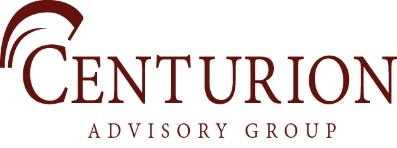The IRS and Your Cash Flow
The IRS is ramping up their hiring of auditors and is intentionally increasing their audits of small businesses. The definition of small business varies. For purposes of our discussion today, we will define a small business as one where owners still have an operating role in the business.
Many of us have both an ownership role and an operating role within the businesses we serve. A common goal for us is to maximize personal cash flow while minimizing the taxes we pay. There are a few ways owners can take cash from their business on a tax-efficient basis. These are distributions, loans, and personal expenses disguised as business expenses.
Framework
When an owner is deciding how much he/she should take as salary versus distributions, a tendency is to take a lower salary and a higher distribution amount. Why? Every one of us is familiar with the FICA hit on salaries. Every $10,000 in salary (below the wage base, which is $160,200 for 2023) generates more than $1500 (EE/ER) in FICA taxes. We can also simply pull cash and ask our accountant/bookkeeper to classify it as a loan. This would typically show up on the balance sheet on the due to/from shareholder line. And it is also easy to have one credit card which we use for both business and personal expenses. And very enticing to simply deem what for most people would be personal expenses as business expenses.
Salary
The challenge with an artificially low salary? It understates your actual cost of doing business and overstates positive business outcomes. Could you really replace yourself for the $50,000 salary you are taking? Our concern with an artificially low salary is self-deception. You may believe you have a more viable or profitable business than you actually do. You may instead simply have a firm grip on an empty sack.
The IRS is very aware of this strategy as a means of reducing tax exposure. And they don’t like it which is neither here nor there, except they have the power of “The State” behind them. If you need to reduce or negate your salary due to a cash shortfall, document this in your shareholder minutes. Otherwise, we encourage you to take a salary commensurate with your roles and responsibilities. There are no clear regulatory guidelines on reasonableness of compensation. We recommend legal, tax, and HR advice around this question.
Loans
Loans from the business to the shareholder are common. And in many cases, there is no loan documentation other than a balance sheet entry. Cash taken as a loan however, isn’t income to the shareholder, so it can be an attractive way for the owner to avail her/himself of cash. There are legitimate reasons for companies to make loans to shareholders. If loans are made, we encourage best practices. These are documentation in shareholder minutes of the purpose for the loan. And coincident with those minutes, we recommend a promissory note which outlines all terms and conditions of the loan including amount, repayment schedule, and interest rate. In a best case scenario though, there would be no loans to shareholder on the balance sheet.
Distributions
In our experience, common transactions classified as distributions are personal estimated tax payments made from the business account and personal expenses paid from the company checkbook or credit card. We have done both and for many years, these transactions were accepted practice. Many of you want to represent your business results accurately and so are attentive to which transactions on a company credit card are business, and which are personal. And are intentional about working with your accountant or bookkeeper about coding those transactions correctly as either personal or business expenses.
Going forward, the IRS is taking the position that those distributions should be deemed wages and taxed as such. And they are training their agents to this standard. Whether we like or not is immaterial.
IRS
What is the IRS focused on? S-Corporations who are not paying shareholder salaries but are paying cash distributions. S-Corporations who have loans receivable from shareholders on their balance sheets. S-Corporations who are not paying their operating shareholders an adequate salary. S-Corporations who are paying shareholder personal expenses from business bank accounts and recording them as distributions. While common practice, the IRS will begin treating these as wages.
What To Do?
If you have loans from your company, pay them off. Get rid of all loans to shareholder on your company balance sheet. If funds aren’t available to do this, document the loan as noted.
Don’t make your estimated tax payments from your business account. Make a transfer, coded and documented as a distribution, to a personal account. Make estimated payments from that account.
If you are intentionally paying yourself a low salary to avoid FICA, and your business is profitable with cash on hand, rethink your strategy. Increase your earned income to something more in line with your industry, role, responsibilities, etc.
Finally, make a clean break with your credit card use. Have a card you use only for business expenses and nothing else.
We have done these things in our business. And are always willing to help you think about any of these items. Not only will it take care of compliance-related issues, it will allow a much cleaner and clearer picture of business health.
As noted, always reach out with questions or if you would like to talk. In the meantime, we wish you only the best.
And remember, the best is always yet to come.
Until we see you again, our warm regards,
Randy Brunson

